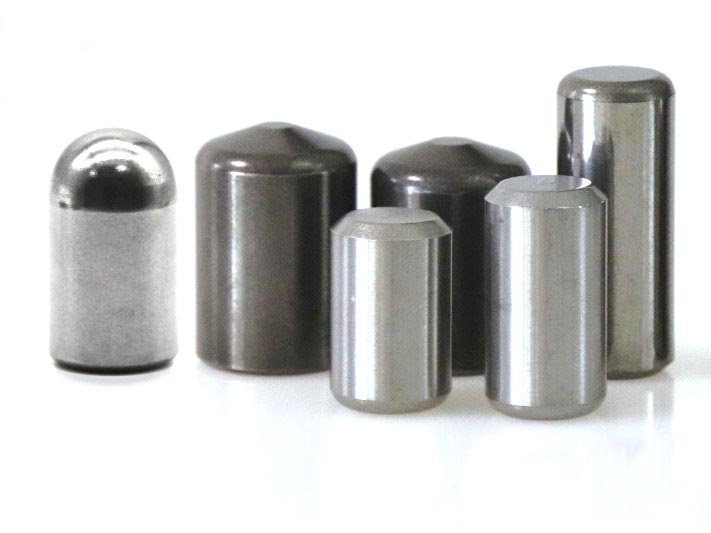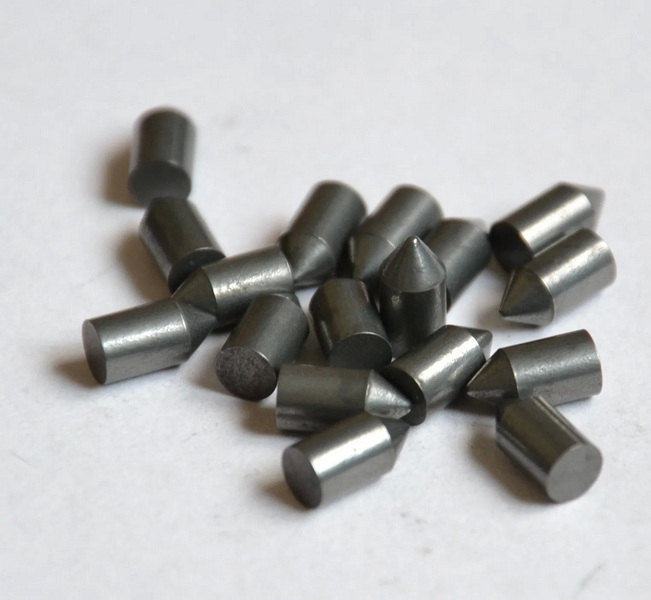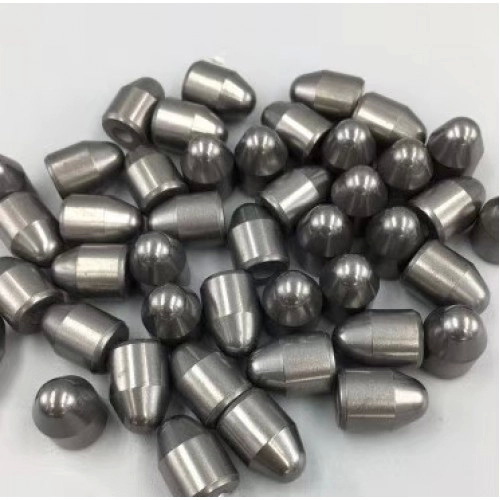Content Menu
● Introduction
● The Critical Role of Carbide Buttons in Modern Industry
● Japan's Manufacturing Approach: Precision, Consistency, and Advancement
● Leading Carbide Button Manufacturers and Suppliers in Japan
● Carbide Button Manufacturing Process: From Powder to Precision
>> 1. Raw Material Preparation
>> 2. Powder Mixing and Wet Milling
>> 3. Spray Drying
>> 4. Pressing or Forming
>> 5. Sintering
>> 6. Finishing and Grinding
>> 7. Quality Control
● Unpacking the Competitive Edge: What Sets Japanese Suppliers Apart
● Applications in Action: How Carbide Buttons Solve Real-World Challenges
● Selecting and Sourcing: Keys to Effective Procurement
● Conclusion
● FAQ – Carbide Button Manufacturers and Suppliers in Japan
>> 1. What are the main benefits of choosing Japanese carbide button manufacturers?
>> 2. Which industries rely most on Japanese carbide buttons?
>> 3. Can Japanese manufacturers produce fully customized carbide button designs?
>> 4. What should international buyers consider when sourcing from Japanese suppliers?
>> 5. How is product quality assured in Japanese carbide button production?
Introduction
Japan stands as a global leader in precision engineering and advanced manufacturing, particularly in the realm of carbide button technology. Recognized for their exceptional hardness, durability, and cutting-edge innovation, Japanese carbide button manufacturers and suppliers have become synonymous with high-performance solutions across industries such as mining, drilling, construction, oil and gas exploration, and heavy industrial machinery. This article provides an in-depth exploration of Japan's carbide button sector, highlighting leading manufacturers, key product applications, unique industry practices, and valuable sourcing tips for international buyers.

The Critical Role of Carbide Buttons in Modern Industry
Carbide buttons are essential for industries requiring materials that can withstand extreme mechanical stress, abrasion, and high temperatures. Their primary advantages include superior wear resistance, sharpness retention, and consistent performance under challenging conditions. Applications are vast:
- Mining & Drilling: Carbide buttons provide unmatched strength for Down-The-Hole (DTH) bits, tricone bits, and top hammer drill bits. These tools are vital for penetrating rock and ore, directly impacting productivity and equipment lifespans.
- Construction: Road milling machines, tunnel boring machines, and heavy equipment rely on carbide buttons to cut, drill, and break hard materials like concrete and asphalt.
- Industrial Machinery: In material processing, wear parts like crushers and heavy-duty cutters are fitted with carbide buttons to reduce downtime and improve efficiency.
- Specialized Engineering: From snowplow blades to PCB drilling and high-precision tooling, carbide buttons drive innovation in metalworking, woodworking, and electronics manufacturing.
Japan's Manufacturing Approach: Precision, Consistency, and Advancement
Japanese manufacturers are globally respected for their meticulous production processes and continual technological advancements. Core characteristics include:
- Comprehensive In-House Control: From raw powder preparation to final quality testing, many Japanese companies retain end-to-end control, ensuring consistent output.
- Relentless R&D: Extensive research on powder composition, grain size, and innovative coatings results in enhanced tool life and improved mechanical properties for end-users.
- Customer-Focused Solutions: Leading brands work closely with clients to develop carbide button geometries and combinations specifically designed for unique industrial requirements. This bespoke approach often leads to higher operational efficiencies and product innovations.
Leading Carbide Button Manufacturers and Suppliers in Japan
Japan boasts several globally recognized carbide button manufacturers, each upholding the nation's standards for excellence, precision, and reliability in industrial tooling. Prominent examples include:
- DIJET INDUSTRIAL CO., LTD.: Known for robust in-house development, this company excels in aerospace, automotive, and die & mold industries, priding itself on long-term quality and innovation.
- Nippon Tungsten Co., Ltd.: Operating since the early 20th century, Nippon Tungsten boasts advanced powder metallurgy and customizable offerings across tooling, electronics, and precision molds.
- Mitsubishi Materials: With a wide range of carbide tooling serving automotive, aerospace, and industrial customers, Mitsubishi Materials is a leader in R&D and global technical support.
- NISHIGUCHI CO., LTD.: Specializing in custom carbide tools for precision mold making, this company is reputed for delivering stable quality even for demanding applications.
- OSG Corporation: This major exporter is celebrated for its comprehensive cutting tool portfolio and innovation in carbide button technology.
- A.L.M.T. Corp.: Backed by the Sumitomo Group, A.L.M.T. offers advanced materials for electronics, semiconductors, and high-performance cutting.
- UNION TOOL CO.: Famed for micro-precision and diamond-coated carbide instruments, Union Tool addresses the needs of electronics and high-end mold manufacturing.
- TUNGALOY CORPORATION: With decades of industry leadership, Tungaloy is noted for heavy industry and oil & gas segment expertise and technical support.
- Sumitomo Electric Hardmetal: Excelling in producing carbide buttons for high-hardness and high-toughness applications, Sumitomo is a vital partner for global manufacturers.
Carbide Button Manufacturing Process: From Powder to Precision
The journey from raw tungsten ore to a finished carbide button is a testament to both metallurgical science and industrial craftsmanship. The typical production stages include:
1. Raw Material Preparation
Production begins with tungsten ore, processed through several chemical reactions to yield tungsten carbide powder. Often, cobalt or nickel acts as a binder, enhancing the composite's toughness and binding ability.
2. Powder Mixing and Wet Milling
The tungsten carbide powder and binder are blended to create a uniform mixture. Wet milling refines the particle size and ensures homogeneity, critical for producing buttons with consistent properties.
3. Spray Drying
The mixture is dried using either vacuum or spray dryers. Spray drying quickly evaporates moisture, producing free-flowing granules ideal for pressing.
4. Pressing or Forming
The granulate is pressed into the desired shape using specialized dies. Carbide buttons come in multiple geometries—conical, ball, parabolic, or spoon shapes—to suit diverse tooling specifications. Automated pressing machines are generally used for small batches, while hydraulic presses handle larger shapes.
5. Sintering
The pressed “green” bodies are loaded onto graphite trays and sintered in high-temperature furnaces (around 1,400°C). Sintering fuses the powder into dense, extremely hard, cemented carbide. Hot isostatic pressing (HIP) may be used for added strength and uniform density.
6. Finishing and Grinding
Post-sintering, buttons are ground, polished, and sometimes coated or subjected to spark erosion for achieving tight dimensional tolerances, mirror finishes, and special surface characteristics.
7. Quality Control
Every batch undergoes stringent quality checks, including hardness, microstructure, and dimensional accuracy assessments. Only buttons that meet rigorous standards proceed to final packaging.
This process, closely guarded and continuously refined by Japanese manufacturers, underpins their global leadership in carbide button technology.

Unpacking the Competitive Edge: What Sets Japanese Suppliers Apart
Japan's carbide button industry exemplifies certain distinct advantages:
- Uncompromising Material Quality: Selective sourcing of high-purity raw materials ensures reliable end products.
- Process Automation: Advanced robotics and automated handling prevent defect-causing impacts, guaranteeing uniformity even in high-throughput production.
- Technical Collaboration: Manufacturers work collaboratively with clients, facilitating rapid prototyping and tailored engineering solutions.
- Certifications and Compliance: Adherence to ISO, JIS, and industry-specific standards is universal, simplifying global trade and supplier qualification.
Applications in Action: How Carbide Buttons Solve Real-World Challenges
Across mining, construction, and precision machining, Japanese carbide buttons drive efficiency and outcomes. Some notable industry applications include:
- Hard Rock Mining: Carbide button bits manufactured in Japan are standard in mining operations worldwide. Their durability maximizes drilling efficiency, shortens project timelines, and reduces costly downtime.
- Tunnel Boring Machines: Infrastructure firms utilize specially formed carbide buttons on TBM cutterheads, enabling smoother, longer tunnel runs and reducing tool change frequencies.
- Precision Electronics: Micro-sized carbide buttons support Japan's thriving electronics sector by enabling ultra-fine PCB drilling and mold fabrication.
- Oil and Gas Drilling: Energy contractors use carbide button tools for deep well and directional drilling, ensuring robust performance in high-pressure, abrasive environments.
Selecting and Sourcing: Keys to Effective Procurement
For foreign brands, wholesalers, or manufacturers considering partnerships with Japanese carbide button suppliers, several factors are critical:
- Production Capacity: Manufacturers in Japan can accommodate both large-scale OEM orders and small-batch custom production, making them suitable for brands of any size.
- Customization Capabilities: Ability to customize geometry, composition, and mechanical properties according to industry applications adds significant value, especially in niche markets.
- International Support: Japanese suppliers often maintain robust after-sales technical support and global logistics channels, ensuring timely delivery and responsive service.
- Innovation Pipeline: Partnering with Japanese companies often opens doors to next-generation tool technologies, keeping your business ahead of industry trends.
Conclusion
Japanese carbide button manufacturers and suppliers remain at the forefront of industrial tooling innovation, driven by meticulous process control, advanced R&D, and a culture of continuous improvement. By choosing Japanese-made carbide buttons, global brands and distributors benefit from reliability, durability, and technical sophistication that translate directly into operational performance and competitive advantage. Whether seeking standard components or bespoke solutions, Japan's carbide button industry is well-equipped to support the growth and evolution of companies across sectors.

FAQ – Carbide Button Manufacturers and Suppliers in Japan
1. What are the main benefits of choosing Japanese carbide button manufacturers?
Japanese suppliers ensure top-notch quality through precision manufacturing, advanced research and development, and robust quality control processes. These practices guarantee excellent hardness, wear resistance, and long tool life.
2. Which industries rely most on Japanese carbide buttons?
Key industries include mining, construction, oil and gas, electronics, and high-precision machining. Their durability and performance make them indispensable in challenging industrial environments.
3. Can Japanese manufacturers produce fully customized carbide button designs?
Yes, most leading Japanese carbide button manufacturers offer extensive customization services, including variations in shape, size, binder composition, and surface treatments to match end-user requirements.
4. What should international buyers consider when sourcing from Japanese suppliers?
Important factors include the supplier's production capacity, technical support, customization capability, export experience, relevant certifications, and the ability to provide consistent global delivery.
5. How is product quality assured in Japanese carbide button production?
Quality assurance combines the use of premium raw materials, automated production lines, multiple in-process inspections, and final batch testing using advanced metrology to ensure compliance with strict standards.
















